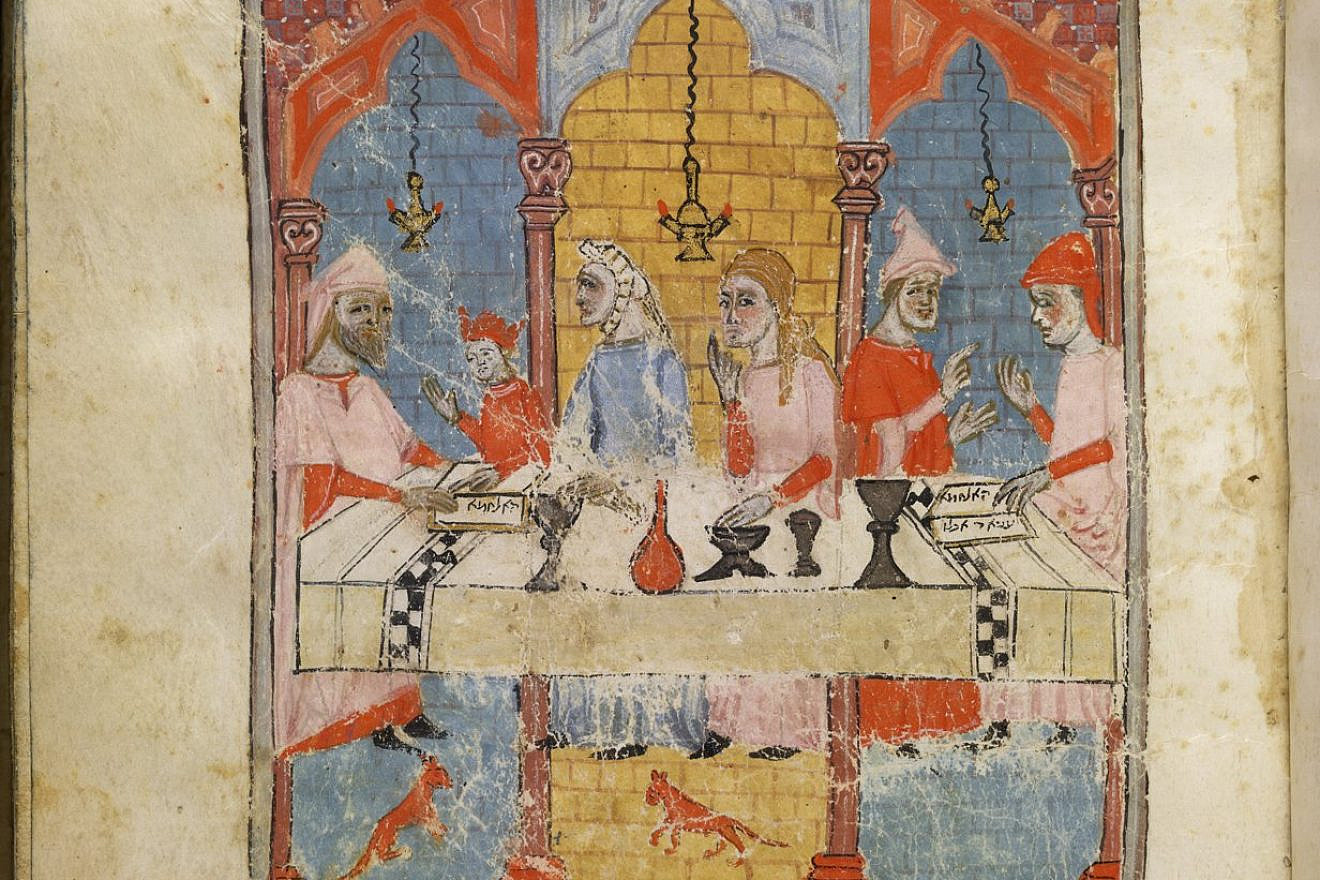What will be the single most popular question at seder tables around the world this year?
Probably the same as every year: “When do we eat?!”
Seriously speaking, have you had your fair share of questions at the seder? Any room for a few more?
Last week, I wrote about the famous seder in Bnai Brak mentioned in the Haggadah. The great sages were discussing the Exodus story and its ramifications all night long until their students came in the morning. This week I would like to ask a related question. In fact, I could divide it into my own “Four Questions.”
“It once happened on Seder night that Rabbi Eliezer, Rabbi Joshua, Rabbi Elazar ben Azariah, Rabbi Akiva and Rabbi Tarfon were dining together in Bnai Brak.”
Question 1: Why does the Haggadah tell us the venue, Bnai Brak?
Question 2: Did all those esteemed sages live in Bnai Brak?
Question 3: Did they not have their own families?
Question 4: Did they not have their own congregations and communities?
How did it come to pass that all these esteemed rabbis were together at one seder?
Well, let’s investigate the historical record: When did these rabbis live? The answer is that it was at a terrible time in our history. The Holy Temple had been destroyed by the Roman legions and lay in ruins. The Roman oppression of the Jewish remnants was brutal. The streets of Israel were littered with Jewish corpses. There were no human-rights organizations to protect Jewish victims (not that they protect them now either). Times were not only tough but probably the worst they had been in centuries.
And the great sages of Israel were in no mood for a dinner party.
A seder? To celebrate the Exodus from Egypt 1,500 years ago? To remember our liberation? We are enslaved all over again! How can we celebrate? We may be free from Pharaoh but now we have new Roman overlords. How can we drink four cups of freedom at a time like this?
So the sages were in no seder spirit that Passover. Maybe we should give it a miss this year, they might have been thinking.
And that is precisely why they were in Bnai Brak. No, they did not all live there; but they went to Rabbi Akiva, the Rav of Bnai Brak, to join him at his seder.
Why?
Because they reckoned that if there was anywhere to be this Pesach, it had to be with Rabbi Akiva. In fact, they decided it was the only place they could be.
Why is that?
At the very end of Makkot, the Talmud tells the story of how some of these very sages were surveying the ruins of the Holy Temple in Jerusalem from Mount Scopus when they witnessed the most disturbing sight. They saw a fox coming out of the site of the Holy of Holies. They burst into tears.
But Rabbi Akiva smiled.
The sages challenged Rabbi Akiva: “On desolate Mount Zion foxes are running in and out of our holiest site, and you smile?”
Rabbi Akiva replied: “I could never believe it would happen, that the Temple would be destroyed. That Jerusalem should be razed to the ground. How was this possible? But the prophet foresaw it and told us it would indeed happen. And he was right. Well, there are other prophecies too, including a prophecy of redemption, that Jerusalem will be rebuilt. Now that I see with my own eyes that the prophecy of destruction has been fulfilled, I can believe that the prophecy of redemption will likewise be fulfilled. And so, I smiled.”
The sages famously responded, “Akiva nichamtanu, Akiva nichamtanu—Akiva, you have comforted us. Akiva, you have comforted us.”
So now, as these same sages agonized over how to celebrate the Festival of Freedom in such dire and dismal circumstances, they decided that the only place they could possibly be for the seder was with Rabbi Akiva. He could comfort them. He could give them some of his spirit, hope, faith, confidence and solace.
That is why all these outstanding luminaries were together in Bnai Brak that Pesach night.
And what about us?
How do we celebrate the Festival of Freedom knowing that our loved ones are still prisoners in Gaza? How do we celebrate knowing that any minute we could be forced to run to bomb shelters? How free are we?
I think if we walked down the ancient cobblestones of Bnai Brak, we might hear the legendary Rabbi Akiva giving us comfort, too: “It’s true that so many of our families are suffering the loss of their loved ones and the painful absence of the hostages. And we indeed have no peace partner and nothing to look forward to on the political landscape. But there is not only destiny in deliverance. There is also destiny in darkness and even in disaster.
“We have no one to rely on but our Father in Heaven. And our own unity. When we are together as brothers and sisters, look at the miracles we have just experienced! Over 300 Iranian missiles and drones and hardly any damage whatsoever with 99% stopped in their tracks! Those who know argue that this was nothing less than a miracle of biblical proportions! Do we not have something to celebrate? Do we not have so much to still be thankful for?”
I hope Rabbi Akiva will forgive me for allowing myself the editorial license to paraphrase him speaking to us today. Maybe his words would be different. But I believe the message would be the same.
Whether we’re in Bnai Brak or Boston, Jerusalem or Johannesburg, let us connect to Rabbi Akiva’s message of vision, hope and inspiration. And please God, may we soon see the fulfillment of the prophecies of redemption for Israel and the whole world.


























